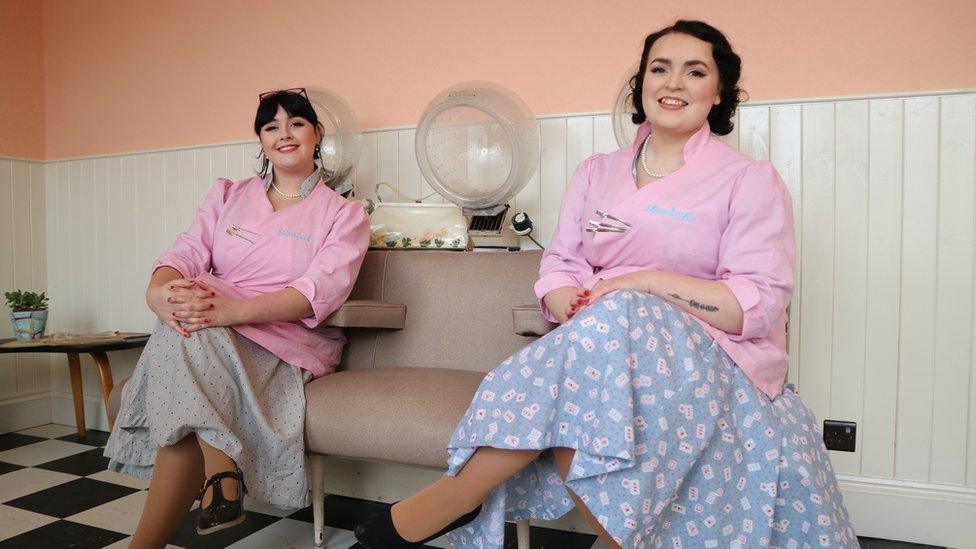Beamish Museum 1950s homes helping people with dementia
- Published
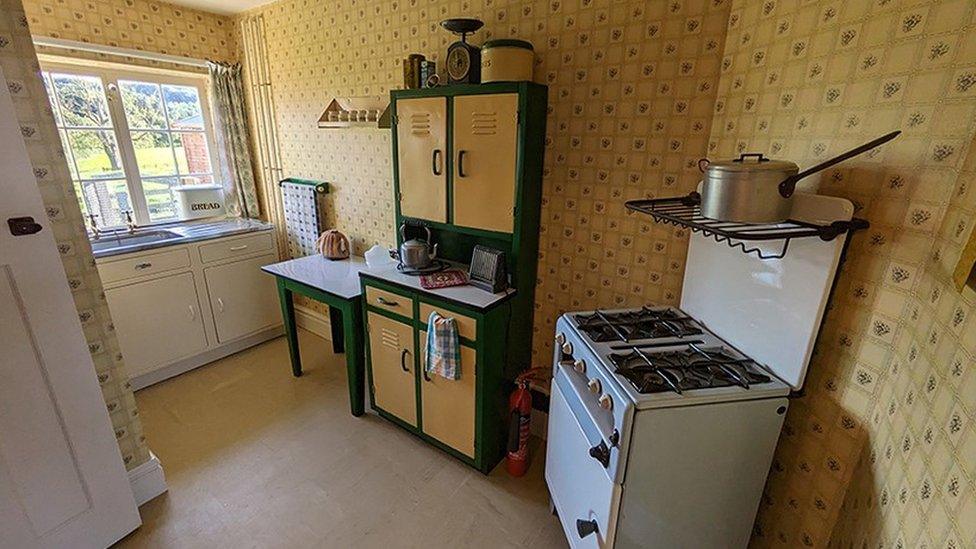
A 1950s-style kitchen inside the newly-opened aged mineworkers' cottages
People living with dementia are being supported through the opening of new replica-1950s homes at Beamish Museum.
The aged mineworkers' cottages are based on properties in South Shields.
Two homes are open to the public while another has been converted into a space for those with long-term conditions, who lived through the period.
"Those longer-term memories, their childhood, teenage years, early married life, are much, much stronger," said the museum's Michelle Kindleysides.
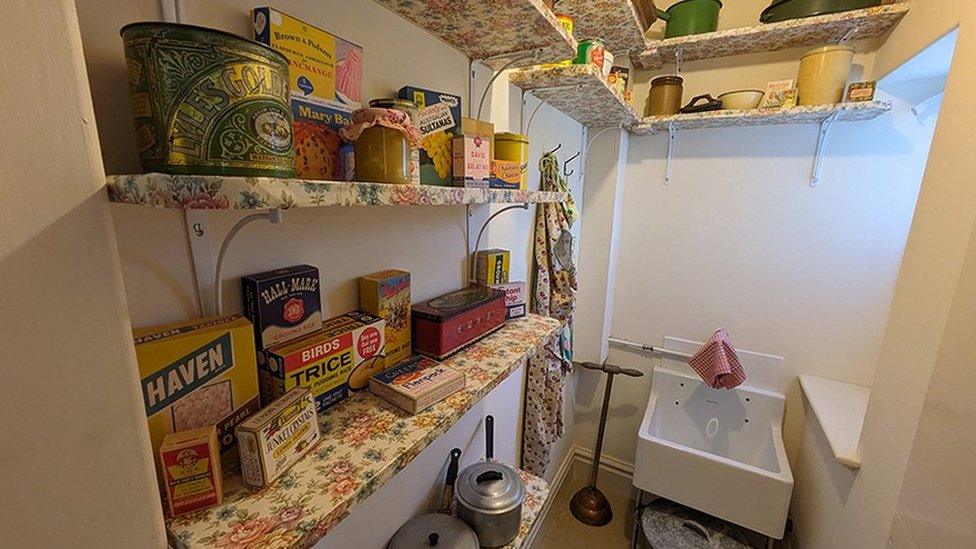
Two of the cottages are open to the public and feature items from that period
The museum's health and wellbeing team, which will be based at Clover Cottage, runs activities for people living with dementia and other health conditions.

Michelle Kindleysides, the museum's head of health and wellbeing, inside the kitchen at Clover Cottage
The new community facilities in the 1950s Town replace ones previously housed in a replica 1940s cottage at the venue near Stanley, County Durham.
"We often see that coming to a space like this everything seems more familiar," Mrs Kindleysides added.
"We can see people feel more relaxed, more comfortable and more confident as well."
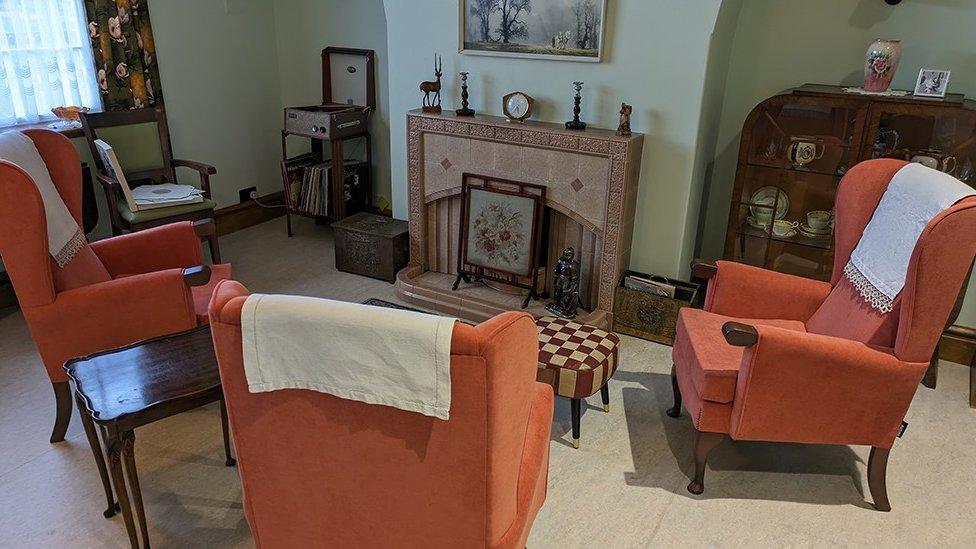
Clover Cottage will be used to help people with dementia, who would have been young people in the 1950s
It has been designed using first-hand accounts and memories of the 1950s.
Aged mineworkers' homes were some of the earliest forms of social housing to help elderly members of mining communities.
The terrace is based on and named after existing properties in Marsden Road.
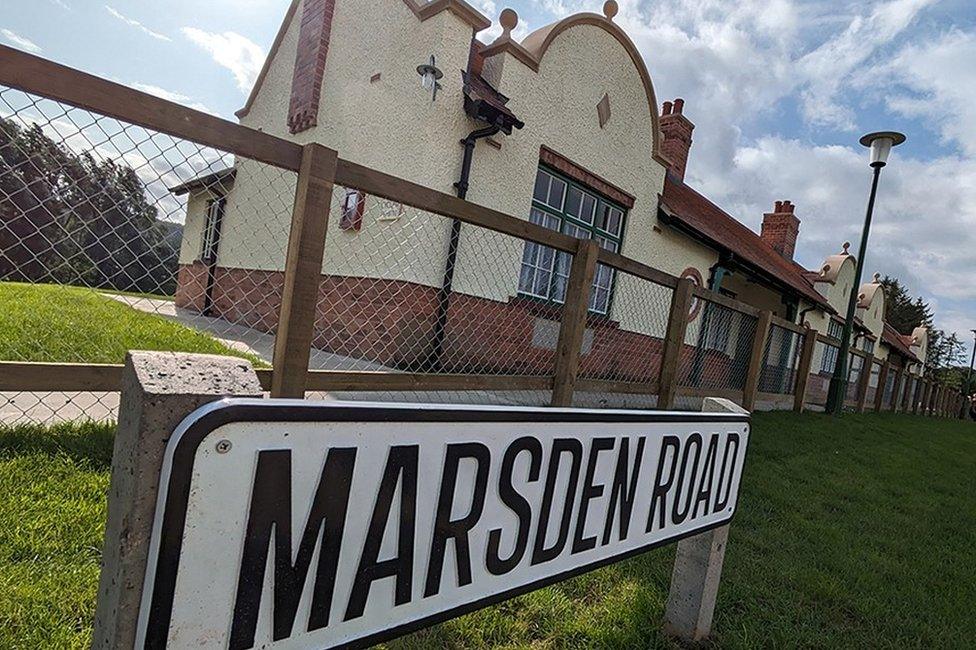
The replica homes inside the County Durham museum are named after Marsden Road in South Shields
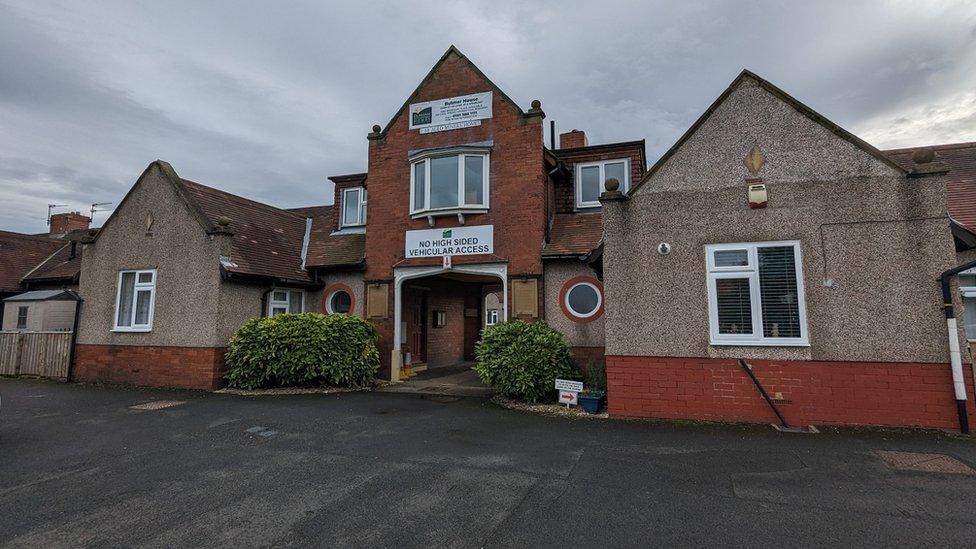
The real aged mineworkers' cottages in South Shields were the inspiration behind the new attraction
It shows what life would have been like for the region's retired miners in the 1950s, telling the stories of a recently-retired couple and an older widow.
The museum worked with Durham Aged Mineworkers' Homes Association, residents and community groups to gather stories and memories.
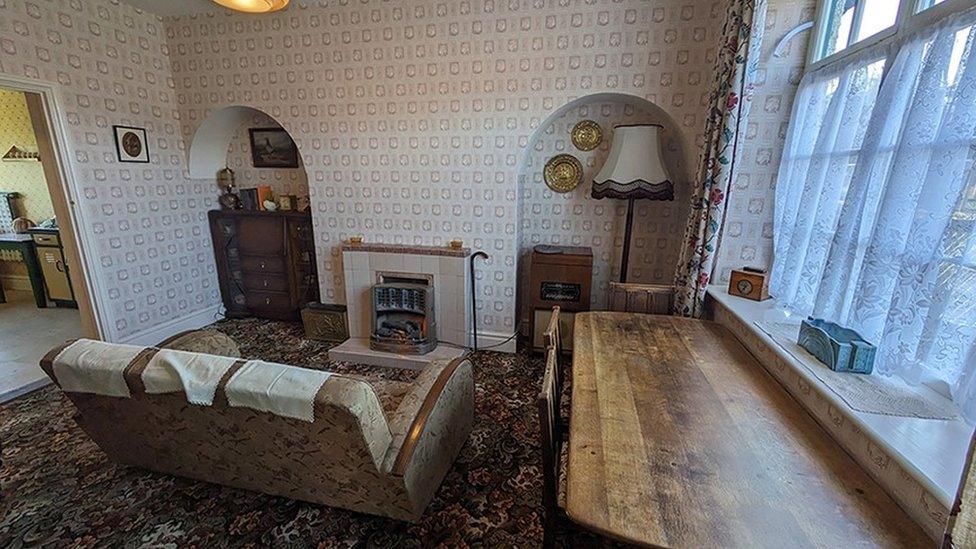
A 1950s-style front room, which is part of the new 1950s Town at the museum
Chris Tindale's late mother Jean, who had dementia, shared her memories about 1950s furniture, and Clover Cottage features a pale blue-coloured kitchen based on her suggestion.
She also took part in sessions at Beamish in its 1940s space.
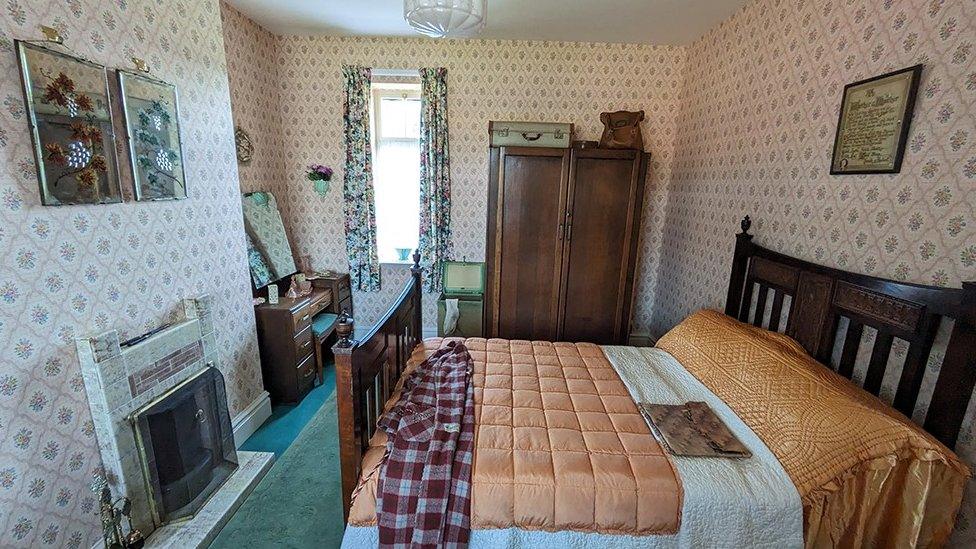
The interiors have been meticulously designed to capture the period
"You would open the front door and there would already be the smell of the smoke coming up," she said.
"Immediately she was transported back to being a child - the artefacts and the furniture, the [kitchen] range where she made toast and things.
"For somebody with Alzheimer's, the things that she did in the morning would have gone out of her head completely but when she came into this supported ethos she would instantly feel herself again - she would talk about the war and she would talk about being a child."
The aged mineworkers' cottages are now open to the public.

Follow BBC North East & Cumbria on X (formerly Twitter), external, Facebook, external and Instagram, external. Send your story ideas to northeastandcumbria@bbc.co.uk, external
Related topics
- Published19 February 2022
